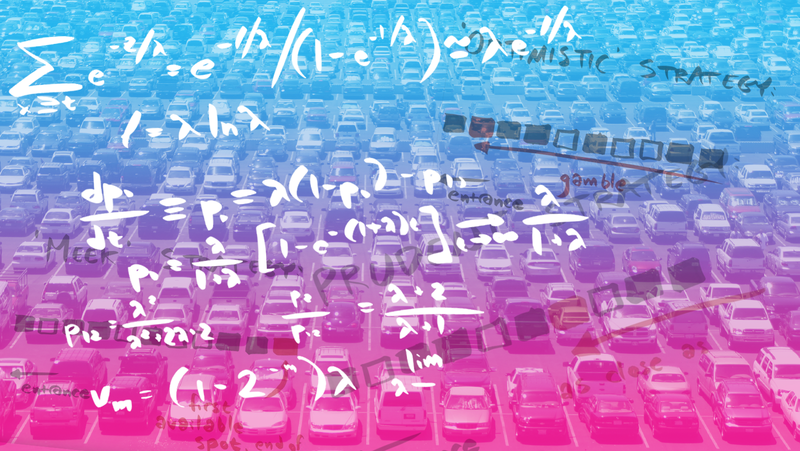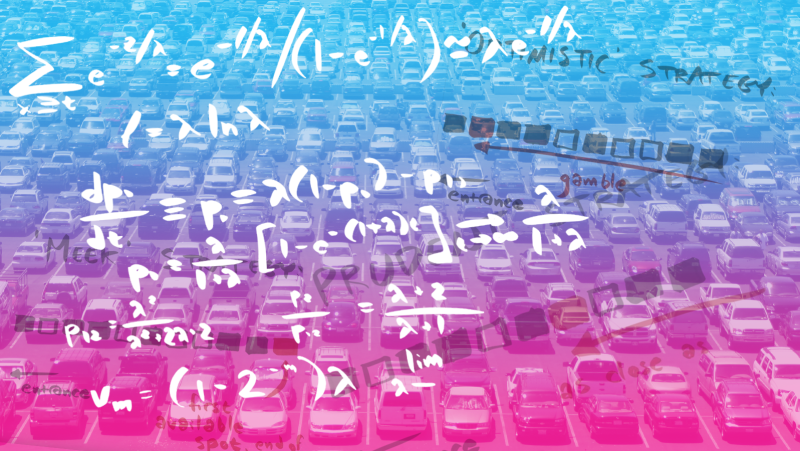
When it comes to finding a place to park in a crowded parking lot, people tend to employ different strategies. Is it better to search for a spot closest to where you want to get to, or should you spend less time looking and just take whatever spot is open, and walk further? Which gives the optimal result, parking-wise? Finally, mathematics has been employed for something useful, as a new paper in the Journal of Statistical Mechanics: Theory and Experiment claims to have solved this problem.
The paper, written by Physicists Paul Krapivsky of Boston University and Sidney Redner of the Santa Fe Institute, is called, with refreshing honest, Simple Parking Strategies, and takes the three most common parking behavior types—called here meek, prudent, and optimistic—and computes which is best.
Advertisement
Here’s the abstract:
“We investigate simple strategies that embody the decisions that one faces when trying to park near a popular destination. Should one park far from the target (destination), where finding a spot is easy, but then be faced with a long walk, or should one attempt to look for a desirable spot close to the target, where spots may be hard to find? We study an idealized parking process on a one-dimensional geometry where the desired target is located at x = 0, cars enter the system from the right at a rate λ and each car leaves at a unit rate. We analyze three parking strategies—meek, prudent, and optimistic—and determine which is optimal.”
If all that reading is making you dizzy and maybe a little angry, here’s a handy animation to help describe things:
In case you’re unable to read the whole paper, here’s a quick summary of what Krapivsky and Redner discovered:
Advertisement
Of the three types of parking behaviors (meek, which takes the first available spot, optimistic, which gets as close as possible to the destination to find a spot, and then works backwards until one is found, and prudent, which means you get as close as you can in the first close open space found) the researchers found the prudent strategy worked best, with the optimistic one close behind.
It doesn’t appear to be worth it to be a meek parker. I think that goes for many things in life. Be bold! Take the close spot! Just, you know, don’t waste too much time looking for the closest.
Advertisement













